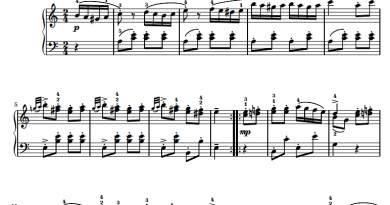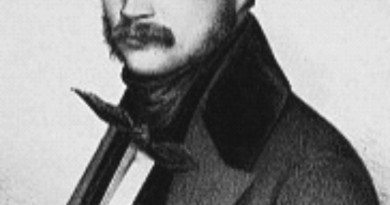Tempo and Expression Marks
Having explained time and accent, we now will speak of tempo, or the rapidity of movement in which apiece of music is to be performed. The tempo of a piece of music is best indicated by its own character.
In order, however, to make the composer’s ideas quicker known and better understood, certain Italian words have been accepted for the purpose of indicating tempo.

Tempo expressions in music
There are three different movements recognized :
- BLOW. Expressed by the terms Largo, Grave, Adagio, Larghetto, etc.
- MODERATELY FAST. Expressed by Moderate, Andante, Andantino, Allegretto, etc.
- FAST. Expressed by Allegro, Vivace, Presto, Prestissimo, etc. These terms being in themselves very indefinite, an instrument has been invented, known as Maelzel’s Metronome, which indicates tempo with mathematical accuracy. When the proper time for the use of the Metronome comes, the teacher, no doubt, will explain it. Formerly the tempo as expressed by the above terms was taken somewhat Blower than now. When playing works by the older masters, therefore, this fact should be borne in mind. The tempo should never become so slow that melodic connection is destroyed, nor so fast that passages become indistinct. The pupil should keep an even tempo throughout his exercises and pieces. The practice of swaying to and fro with the time, called tempo rubato, should be avoided altogether by younger pupils. If the time in a piece of music is to be retarded, it is indicated by the terms ritardando, rallentando or smorzando. If the movement is to be accelerated, it is indicated by the terms stringendo, accelerando. If the player is to return to the original time after changes in its tempo have been made, it is indicated by the terms a tempo or tempo primo.
Expression marks in music
The following are some of the expression marks which occur most frequently in music :
- ff FORTISSIMO. Very loud.
- f FORTE. Loud.
- mf MEZZOFORTE. Medium loud.
- Sf SFORZANDO. Indicating that a note is to be played –
with great force, also indicated by this sign
- p PIANO. Soft.
- pp PIANISSIMO. Very soft. Cresc.
- CRESCENDO. Gradually getting louder, is also expressed by this sign

- Decresc. DECRESCENDO. Gradually getting softer, is also expressed by this sign

- Ped. So-called loud PEDAL the one to the right side. A star
 indicates that the foot should be removed from it.
indicates that the foot should be removed from it.



